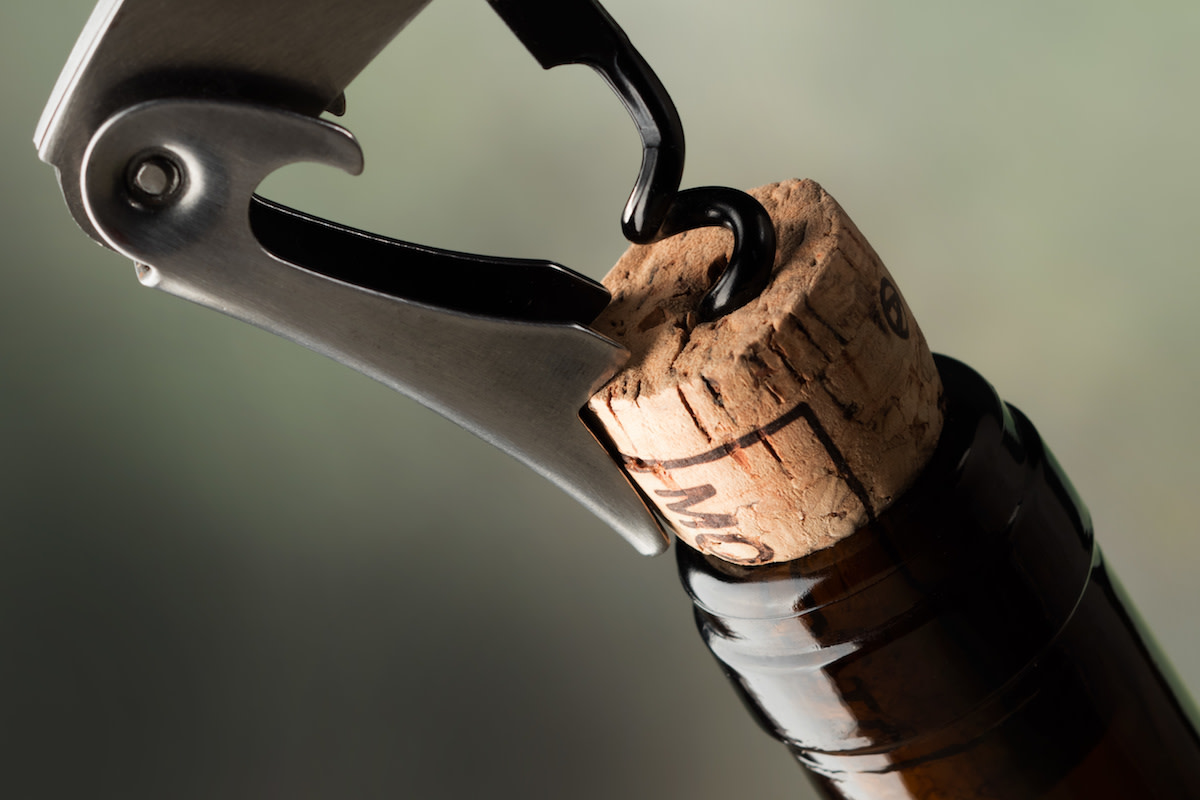Wine 101: What Are the Differences Between Corks and Screw Tops?
Written by MasterClass
Last updated: Sep 2, 2022 • 3 min read
What’s between you and your wine? There are two main closure methods for wine bottles: corks and screw tops. The use of natural corks, synthetic corks, or aluminum screw tops depends on the type of wine and how it can best be preserved.
Learn From the Best
What Are Wine Screw Tops and How Do They Work?
Wine screw caps are made from aluminum. The cap twists into grooves in the bottleneck, sealing the bottle. The screw caps also have a liner that prevents air from entering the bottle. Screw caps are simple to open and do not require a wine key or corkscrew—which also makes resealing wine bottles easy. Screw caps work well for wines intended for early consumption, such as white wines and light red wines.
Screw caps started being used by wineries in the 1950s. The best-known screw cap is the Stelvin, a screw cap brand that incorporates a plastic insert, liner, and outside covering that resembles the traditional wine foil found on corked wine.
What Are Wine Corks and How Do They Work?
Wine corks are stoppers created from the bark of a cork oak tree. The malleable material expands within the wine bottleneck, creating a seal. Cork seals have been topping bottles of wine since the early 1700s, which started at the same time of the proliferation of glass bottles. Corks work best for age-worthy wines, such as red wines, rieslings, and Chardonnay.
There are also synthetic corks, which are created with plant-based polymers and plastics. They are designed to pop like a natural cork and are cost beneficial to wine manufacturers.
How Does a Wine Bottle Closure Impact the Wine Itself?
The method of how a wine bottle is closed is important because wine toppers preserve the properties in wine over time, affecting the development and aging processes.
- The ultimate goal of all wine tops is to prevent large amounts of oxygen from entering the bottle. Too much oxygen can alter the smell and taste.
- Wine toppers also serve as a barrier against bacteria and mold.
- Cork is a porous material, which allows trace amounts of air to enter the bottle. Bigger, fuller wines benefit from the little oxygen that does permeate through cork tops. This air helps to smooth out the tannins in the wine. Tannins are substances from grape skins that create texture and the dry mouthfeel of the wine.
- Natural corks, however, are susceptible to what is called cork taint or TCA, short for trichloroanisole. This is when mold pervades the cork and can contaminate the wine, affecting its smell and taste.
What Are the Differences Between Corks and Screw Tops?
Wine closures depend on the type of wine and its intended use. Corks and screw tops each have different characteristics.
Corks:
- Natural corks allow for oxygen to enter the bottle slowly over time. This aids in the slow aging process of wines, which is important for age-worthy wines.
- Corks are environmentally friendly and biodegradable.
- However, corks are susceptible to TCA or cork taint.
- Corks also have variable rates of breathability, meaning that the same wine with different corks can have a different taste.
Screw caps:
- Wine bottles are easier to seal for later consumption.
- Screw caps can reduce “wine faults,” or spoiling of the wine.
- Bottles with screw caps are not susceptible to cork taint.
- However, the wine inside screw top bottles might have “flint struck,” or a metallic taste.
- Screw caps are not biodegradable.
Corks vs. Screw Tops: Which Is Better?
Natural corks are the traditional method of wine toppers, especially in Old World wine countries like France, Spain, and Italy. Screw tops have become the primary closure method for wine bottles in both Australia and New Zealand. In these markets, screw caps top both value-oriented wines and high-end bottles.
- Screw caps suffer from an unfair reputation, often associated with inexpensive wines. However, this is not a definitive marker of the wine’s quality.
- A lot of today’s winemakers choose screw caps as toppers for high-end, expensive wine because they are easier to handle in the manufacturing process and because screw caps reduce the possibility of cork taint.
- At the end of the day, both corks and screw caps have advantages and disadvantages, so there is no definitive answer for which is better.
Learn more about wine appreciation in James Suckling’s MasterClass.
